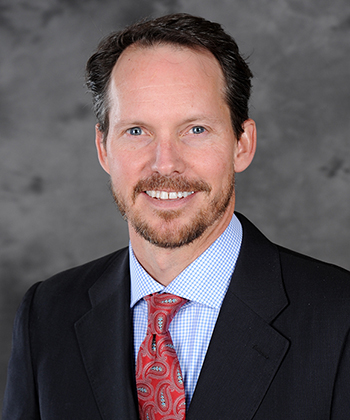
Recently, The Wall Street Journal criticized the Certified Financial Planner Board of Standards (CFP Board) regarding the integrity of their search directory for CFP® professionals that resulted in a lot of commentary and confusion. As a certifying body like the CFP® Board, the Investments & Wealth Institute would like to clarify some misconceptions brought to light by the article.
There are distinct differences between governmental licensure and certification, both of which set standards for an industry. Licensure is mandatorily required to practice in the area requiring it, whereas certifications are voluntary. Each plays an essential role in establishing a more competent and ethical profession, and each plays a role in benefiting the consumer.
The primary benefit of voluntary certification is to help consumers identify which professionals submit to a voluntary standard "above and beyond" those required by law and regulation. When I select a Pediatrician from my insurance network of doctors, I prefer a Board-Certified Pediatrician because I know they have gone above and beyond what is required to be a licensed practitioner.
Voluntary certifications protect the consumer by raising the bar of professionalism within an industry or profession. In highly regulated industries like U.S. financial services, it is difficult to claim that regulators are not protecting consumers at a sufficient level. Certifying bodies do not have subpoena power and therefore cannot adequately conduct an independent and thorough investigation. Some certification bodies lack resources to investigate each and every licensed practitioner, as regulators should. Unfortunately, within some industries or within some countries, regulators do not have adequate resources to provide appropriate oversight. For example, in many countries where there is little to no investment management regulatory oversight, voluntary standards are the only standards. The CFA Institute operates in many of these countries, and their Code of Ethics requires charterholders to comply with a given country's regulatory scheme and the CFA Code. If there are any differences, the charterholder is expected to follow the HIGHER PRINCIPLE.
Voluntary certification also affords an industry or profession with a means to educate and qualify fields of competency not addressed through regulation, including emerging areas of specialty. This serves the industry, the profession and the public simultaneously, so long as the process through which the entity certifies a job or practice consistently, objectively, and fairly conveys a certification mark upon a professional. Third party accreditation boards like American National Standards Institute (ANSI) and National Commission for Certifying Agencies (NCCA) assess certification programs, including their policies, procedures and management systems against a best practices standard. The Certified Investment Management Analyst® (CIMA®) certification was the first financial services credential in the U.S. to earn ANSI/ISO accreditation in 2011. It benefits a regulatory environment when there are multiple voluntary standards who aim to do their work in a quality manner.
The financial industry has evolved significantly since its early days, and today’s advisors must navigate an immense body of knowledge. Our industry’s regulatory exams adequately address product and service level minimum competencies. The CFP® certification is a step “above and beyond” those minimal, legal requirements, and should be acknowledged as such. However, they do not represent “the highest standard.”
Advanced knowledge competencies are required in nearly every business model delivering financial advice. Like medicine, law, nursing, technology, and numerous other fields, there is room in the financial advisor community for multiple “highest standards.” The certifications administered by the Investments & Wealth Institute meet certification best practices and are designed to teach and assess advanced capabilities in investment management (CIMA® certification), wealth management (CPWA® certification), and retirement management (RMA® certification).
One of the core issues outlined by The Wall Street Journal article was that the CFP® Board of Standards was relying on certificants to disclose regulatory and ethical violations, and that this system of self-disclosure led to numerous examples whereby certificants listed in their search tool had a regulatory history. We have been asked about our process for initial certification and re-certification for all three certifications we administer. Applicants are required to disclose any legal or regulatory history upon application, but regardless of their answer we conduct a background check on all candidates prior to initial certification. Every two years as part of their re-certification process, our standards and legal department conducts another scan of each certificant’s regulatory record, whether they have disclosed an issue or not.
One final example of the difference between regulation and certification: Codes of Ethics are often Principles-based, rather than rules-based. Principles-based codes of ethics are often aspirational in nature and lead a profession toward a "high ground" of ethical behavior. That does not substitute for complying with the law and regulation, which are rules-based, and necessary within industries whereby professionals can potentially harm people. The core of any voluntary Code of Ethics is to follow the applicable laws and regulations under which a professional operates.
Violations of our code, whether reported through consumer complaints, by other advisors, or through regulatory reports, are handled by a Professional Review Board, including an anonymous hearing panel when appropriate. When taking action against an advisor, the Professional Review Board first determines which regulatory scheme applies to the advisor or consultant. They apply our Code of Professional Responsibility in a manner consistent with the regulatory scheme by which the advisor is governed in the transaction(s) at issue.
Like federal and state regulators, and like the CFP® Board of Standards, the Investments & Wealth Institute is dedicated to raising the bar of professionalism within the industry, protecting investors, and ensuring market integrity. We each take steps, in unique and important ways, to validate the good standing of financial professionals. Informed investors should regularly use information from both regulators and credentialing bodies as part of their ongoing due-diligence process.
For more Investor Research, download the HNW Investor Research Study published by Investments & Wealth Institute and conducted by AbsoluteEngagement.com, 2019.
Sean Walters, CAE® is Chief Executive Officer of the Investments & Wealth Institute® (formerly IMCA), a premier-quality certification and talent development association for financial advisors who strive for excellence and ethics in their practice of investment, wealth, and/or retirement management.


